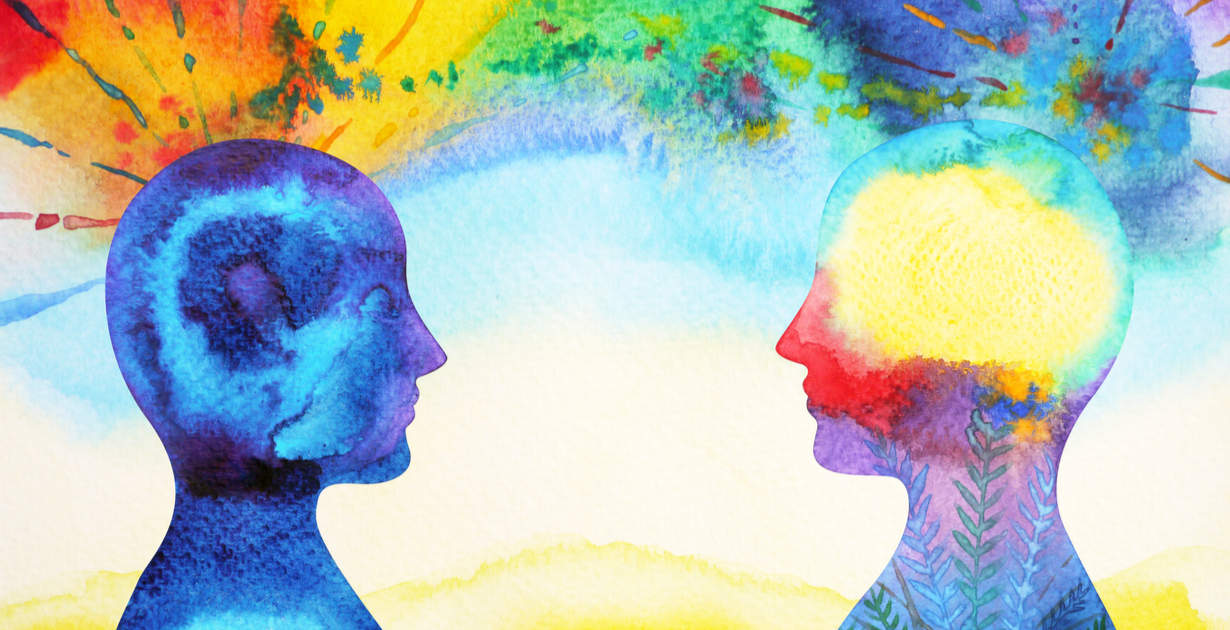When the pressures of daily life become too much, many of us dream about a nice trip to a warm beach to unwind. But to truly cope with the many challenges that life throws at us requires taking inner journeys. These voyages of self-exploration can help us to better understand the circumstances of our existence and how we react to them. So rather than just booking your next vacation, consider taking some of these holistic pathways to mental and physical health.
1. Get comfortable in your own skin
You may have discovered how difficult it is to be isolated, on your own. The truth is, you aren’t good company for others unless you are comfortable in your own skin. So instead of looking for distractions on social media feeds or incessantly gaming, learn to spend time alone finding ways to get to know yourself better. Says one authority: “For many, alone time is a great opportunity for self-reflection and self-discovery. It can also rejuvenate you by balancing your emotions and letting your body physically relax.”
2. Practise meditation

One of the great ways to develop mental and spiritual health is through a meditation practice. Meditation isn’t about becoming calm and happy; it involves accepting yourself and the chaos of your mind and feeling as you are at any given moment. By not running away from difficult thoughts and emotions, you learn to deal with the messy side of your life constructively and get a clearer view of your real purpose amid the constant change.
3. Become mindful
An intense focus on the present moment is the hallmark of many types of meditation. But mindfulness can also be realized through other practices, such as yoga, tai chi and qigong. The American Psychological Association points out that increased mindfulness can reduce stress, improve focus and memory, provide insight, and make our relationships better. Mindfulness activities “focus on training attention and awareness in order to bring mental processes under greater voluntary control and thereby foster general mental well-being and development and/or specific capacities such as calmness, clarity and concentration.”
4. Use art as therapy

Many of us don’t paint or draw because of bad public school experiences in art class. But creating art isn’t about being another Picasso, it’s about tapping into your innate creativity to work out your relationship with the world. You can spend time with a professional art therapist or explore the benefits of creating art yourself, drawing on your own feelings, thoughts and experiences to present the world as seen through your eyes. This kind of expression can be deeply satisfying, helping you better cope with the pressures of life and improving your outlook.
5. Connect with nature
Writers such as Henry David Thoreau celebrate the spiritual renewal promoted by immersing ourselves in nature. Today, as more of us deal with the pressures of urban life, it is even more important to connect with nature, whether that means a long walk in a city park or putting a kayak on your car roof and searching for remote rivers to paddle. Writes the University of Minnesota: “Being in nature, or even viewing scenes of nature, reduces anger, fear, and stress and increases pleasant feelings. Exposure to nature not only makes you feel better emotionally, it contributes to your physical well-being, reducing blood pressure, heart rate, muscle tension, and the production of stress hormones.”
6. Connect with nature

Writers such as Henry David Thoreau celebrate the spiritual renewal promoted by immersing ourselves in nature. Today, as more of us deal with the pressures of urban life, it is even more important to connect with nature, whether that means a long walk in a city park or putting a kayak on your car roof and searching for remote rivers to paddle. Writes the University of Minnesota: “Being in nature, or even viewing scenes of nature, reduces anger, fear, and stress and increases pleasant feelings. Exposure to nature not only makes you feel better emotionally, it contributes to your physical well-being, reducing blood pressure, heart rate, muscle tension, and the production of stress hormones.”
7. Think of others
When we become burdened with the problems in our own lives, we tend to get locked up in our own heads. One way to free ourselves is to think about others. You might have friends who are going through a hard time themselves. Call them up or take them out, and really listen to what they have to say. They will be grateful that you care and, along the way, you can improve your own mood, reduce your stress levels, increase your sense of well-being, and be better prepared to deal with the challenges in your own life.
8. Cultivate gratitude
We are often surrounded by loss, whether it is our own deteriorating health, deaths of family members or friends, loss of prosperity, and the list goes on. Yet some people can retain a sense of optimism under the most dire circumstances, while others will be thrown into a tailspin by the smallest little thing going wrong. To tip the scales in your favour, it helps to cultivate a practice of gratitude, reminding yourself of what is right in your life today. Psychology research shows that “gratitude is strongly and consistently associated with greater happiness. Gratitude helps people feel more positive emotions, relish good experiences, improve their health, deal with adversity, and build strong relationships.”
9. Play an instrument

Learning to play a musical instrument is about tapping into your creativity to exercise your potential and boost your mental health and confidence. Among the benefits of playing music, you can stimulate your brain function, improve your memory, relieve stress, learn patience, and cultivate a sense of achievement. You can also become more social if you decide to play in a group.
10. Do the unexpected
Our lives are often made of routines: going to work, eating something easy, watching streaming entertainment, going to bed and then doing it again. Too much routine can dull the mind and take the joy from life. So mix things up to make them exciting. Call up a friend you haven’t spoken to for a while and arrange to meet. Take a course to pursue a new interest. Make a new recipe that you’ve always wanted to try and turn a meal into an occasion. Psychology Today points out that living on autopilot can close us off to “our sense of awe, curiosity, or excitement.”
Share this:
- Share on Facebook (Opens in new window) Facebook
- Share on X (Opens in new window) X
- Share on LinkedIn (Opens in new window) LinkedIn
- Share on Reddit (Opens in new window) Reddit
- Share on X (Opens in new window) X
- Share on Telegram (Opens in new window) Telegram
- Share on WhatsApp (Opens in new window) WhatsApp
- Share on Mastodon (Opens in new window) Mastodon











